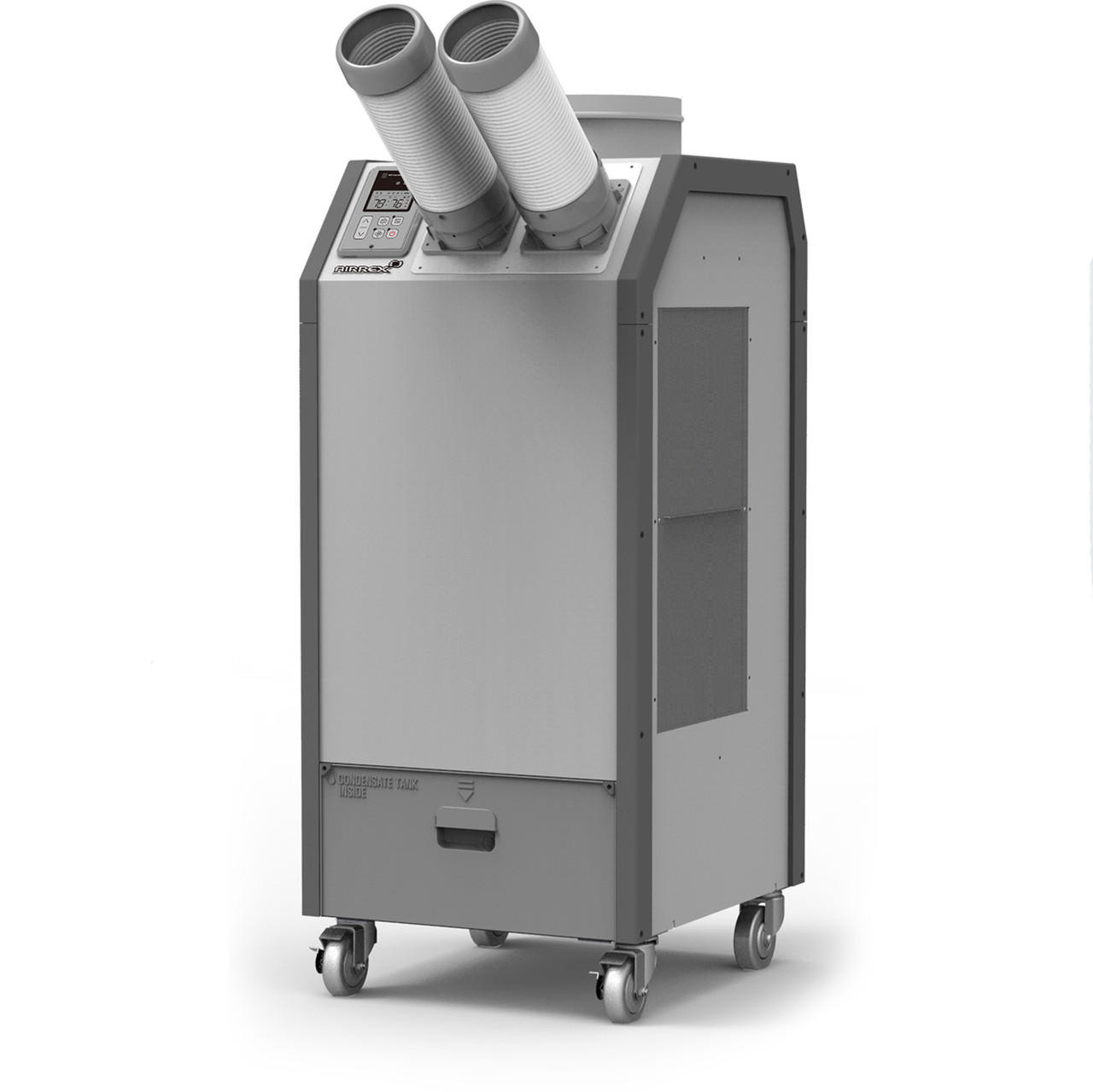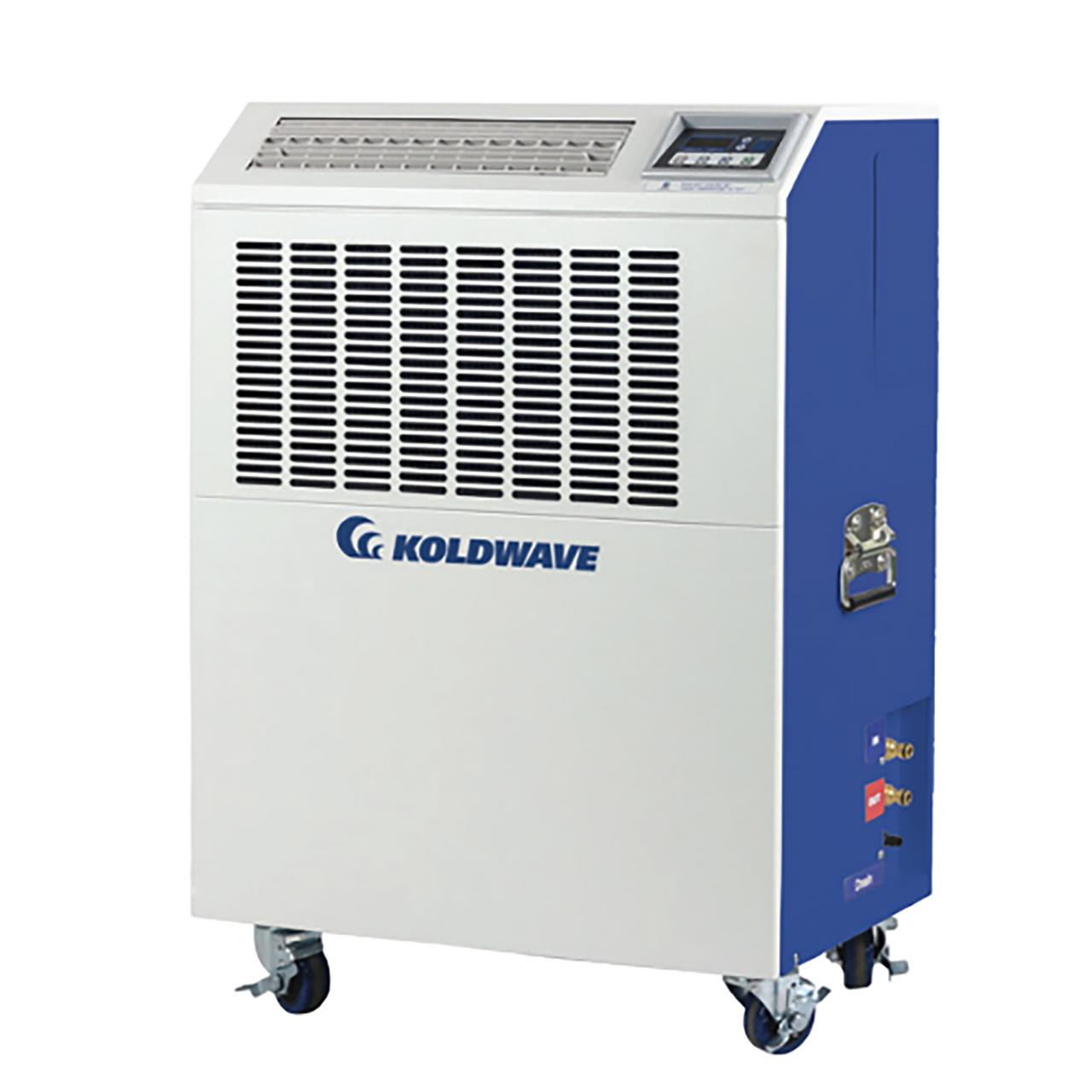Air Cooled vs Water Cooled ACs: Which is Better?
Posted by NorthStock, Inc. on Feb 23rd 2024
Air-Cooled vs Water-Cooled ACs
Portable air conditioners are an ideal solution in commercial and industrial facilities where it's difficult or impossible to install a permanent HVAC system. You'll find them keeping equipment cool and workers comfortable in server rooms, gyms, assembly lines, event tents, construction sites, and other temporary job sites.
If you know you need a spot, supplemental, or emergency cooling solution, you have to decide between an air-cooled vs. water-cooled portable air conditioner for your unique application.
Air-Cooled vs. Water-Cooled Portable Air Conditioner
Both styles feature a compressor, evaporator, condenser, and other components, and they are both refrigerant-based. The difference is in the installation requirements and in the air-cooled vs. water-cooled condenser.
Air-cooled units drive the hot air outside the room via a fan. Because they require ventilation, they must be ducted through a window, into a ceiling plenum, or into another large space. Water-cooled units transfer heat via water in the condenser coil, which requires access to a water source.
The Benefits of an Air-Cooled Portable AC
Because no water hook-up is required, an air-cooled portable AC is a great choice as long as the space has the appropriate ventilation. These units are popular in warehouses, server rooms, manufacturing facilities, and offices.
- Greater cooling power than water-cooled units
- Easy to transport and set up

The Benefits of a Water-Cooled Portable AC
A water-cooled portable AC requires access to a water supply. You may want to consider the cost of the water, depending on how much you're expecting to use your water-cooled unit.
- More energy-efficient than air-cooled units
- Smaller than air-cooled units if space is a consideration
- Self-contained with no ducting required
- Better than air-cooled units in extremely hot environments

Which Portable Air Conditioner Is Right For You?
Your first consideration is the installation requirement. If you have ducting available, an air-cooled portable AC is an option. Otherwise, you'll have to go for a water-cooled unit, as long as you have a water source.
From there, consider the size of the space and the temperature difference you're trying to make. If it's an outdoor event or construction site in the middle of summer, you'll need a unit or multiple units with higher BTUH.
With those two factors accounted for, ask yourself these questions:
- Does the unit need to fit through a standard-sized door?
- What's the operating temperature range the unit will be exposed to?
- Do you need special features like air purification, high-static fans for long duct runs, programmable timers, automatic shut-off, or rugged construction for especially tough environments?
- What's your budget for upfront costs and long-term operational costs, with consideration for utility costs in your area?
HVAC manufacturers understand the diverse cooling needs of commercial and industrial facilities, and they design commercial HVAC units with these factors in mind. You have a wide range of options to meet any emergency, spot, or supplemental cooling requirement.
Air-Cooled and Water-Cooled Portable Air Conditioners at NorthStock
NorthStock carries air-cooled and water-cooled portable AC units from the industry's top manufacturers. With competitive pricing, volume discounts, and free shipping on all orders to the lower 48 states, our team is committed to making HVAC purchasing quick and easy.
Contact NorthStock to learn more about air-cooled vs. water-cooled portable air conditioners and place your order today.